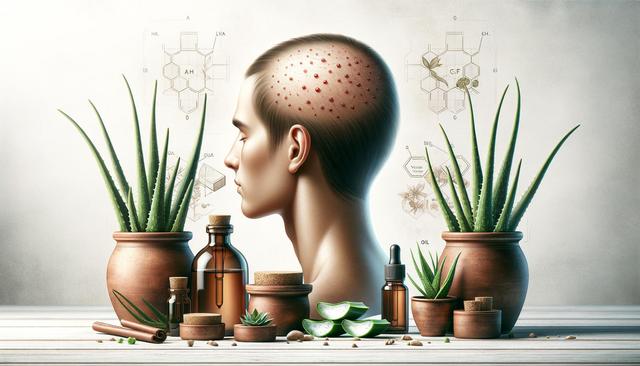Common Causes of an Itchy Scalp
An itchy scalp can result from various factors, some of which are relatively minor while others may require more focused treatment. Recognizing the root cause is the first step toward effective management. Some frequent causes include:
- Dandruff: One of the most common causes, dandruff is often due to dry skin or an overgrowth of yeast on the scalp.
- Product Buildup: Frequent use of hair products like gels, sprays, and conditioners can lead to residue that irritates the scalp.
- Allergic Reactions: Certain ingredients in shampoos, dyes, or styling products may trigger contact dermatitis.
- Psoriasis and Eczema: These skin conditions can also affect the scalp, causing flaking and intense itching.
- Lice: Although less common in adults, head lice are still a potential source of itching.
Identifying the exact cause may require some observation or even consultation with a dermatologist, especially if symptoms persist or worsen.
The Role of Dryness and Weather Conditions
Environmental factors can have a significant impact on scalp health. During colder months or in dry climates, the skin on the scalp can lose moisture, leading to irritation and flaking. Central heating and hot showers, both common in winter, can exacerbate this dryness.
In some cases, individuals may already have a naturally dry scalp, making them more susceptible to seasonal changes. Here are a few signs that dryness may be the culprit:
- Tightness or discomfort on the scalp
- Small, white flakes without redness or oiliness
- Symptom relief after moisturizing or oil treatments
To manage dryness, consider adjusting your routine by using sulfate-free shampoos, avoiding hot water, and incorporating moisturizing treatments like natural oils or scalp masks regularly.
How Hair Care Habits Contribute to Scalp Itch
Daily hair care routines can either support or sabotage scalp health. Over-washing, for example, can strip the scalp of its natural oils, leading to dryness and irritation. On the other hand, infrequent washing may allow oil and dead skin to build up, promoting dandruff and itchiness.
Certain styling practices can also contribute to discomfort:
- Using heat tools frequently without heat protectants
- Tight hairstyles that pull on the scalp
- Wearing hats or helmets for extended periods
Improving your hair care routine may involve balancing wash frequency, choosing gentle products, and avoiding practices that stress the scalp. Small adjustments can make a noticeable difference in reducing itchiness and improving overall scalp condition.
Natural Remedies and Preventive Measures
Many individuals find relief through natural remedies that help soothe the scalp and reduce inflammation. While these approaches may not replace medical treatment in severe cases, they can be effective for mild to moderate issues.
Common natural remedies include:
- Tea Tree Oil: Known for its antifungal and antibacterial properties, it can be diluted and applied to the scalp to target dandruff and irritation.
- Aloe Vera: Its cooling and moisturizing effects can help calm an itchy, inflamed scalp.
- Apple Cider Vinegar: When diluted, it may help restore pH balance and cleanse product buildup.
- Coconut Oil: Offers deep hydration and has antimicrobial benefits.
Consistent scalp care, including periodic exfoliation and moisturizing, can help prevent itchiness from recurring. It’s also helpful to keep track of any products or habits that seem to trigger issues, allowing you to make informed adjustments.
When to See a Professional
If scalp itchiness persists despite home care and over-the-counter solutions, it may be time to consult a healthcare provider. Chronic or severe symptoms could be signs of conditions like seborrheic dermatitis, scalp psoriasis, or fungal infections that require targeted treatments.
Consider seeing a professional if you notice:
- Redness, swelling, or open sores on the scalp
- Thick patches of skin or persistent flaking
- Hair loss in affected areas
- No improvement after trying multiple remedies
A dermatologist can offer a precise diagnosis and recommend medicated shampoos, topical treatments, or other interventions tailored to your needs. Early diagnosis and appropriate care can prevent complications and provide lasting relief.
Conclusion: Take Charge of Your Scalp Health
Understanding the causes of an itchy scalp is essential for finding effective relief. From environmental factors and personal care habits to underlying skin conditions, many variables can contribute to this common issue. By identifying the root cause, adopting healthier hair care practices, and exploring both natural and medical solutions, you can manage or even eliminate scalp discomfort. If self-care measures don’t bring relief, seeking professional guidance can make a significant difference in restoring comfort and confidence in your scalp health.


